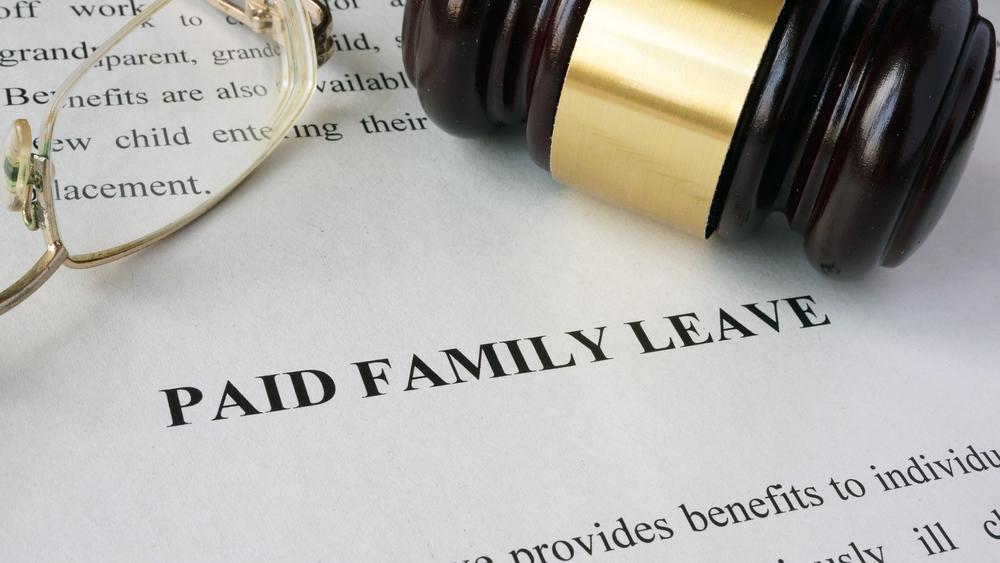MENU
Starting a Business
- Best Small Business Loans
- Best Business Internet Service
- Best Online Payroll Service
- Best Business Phone Systems
Our Top Picks
- OnPay Payroll Review
- ADP Payroll Review
- Ooma Office Review
- RingCentral Review
Our In-Depth Reviews
Finance
- Best Accounting Software
- Best Merchant Services Providers
- Best Credit Card Processors
- Best Mobile Credit Card Processors
Our Top Picks
- Clover Review
- Merchant One Review
- QuickBooks Online Review
- Xero Accounting Review
Our In-Depth Reviews
- Accounting
- Finances
- Financial Solutions
- Funding
Explore More
Human Resources
- Best Human Resources Outsourcing Services
- Best Time and Attendance Software
- Best PEO Services
- Best Business Employee Retirement Plans
Our Top Picks
- Bambee Review
- Rippling HR Software Review
- TriNet Review
- Gusto Payroll Review
Our In-Depth Reviews
- Employees
- HR Solutions
- Hiring
- Managing
Explore More
Marketing and Sales
- Best Text Message Marketing Services
- Best CRM Software
- Best Email Marketing Services
- Best Website Builders
Our Top Picks
- Textedly Review
- Salesforce Review
- EZ Texting Review
- Textline Review
Our In-Depth Reviews
Technology
- Best GPS Fleet Management Software
- Best POS Systems
- Best Employee Monitoring Software
- Best Document Management Software
Our Top Picks
- Verizon Connect Fleet GPS Review
- Zoom Review
- Samsara Review
- Zoho CRM Review
Our In-Depth Reviews
Business Basics
- 4 Simple Steps to Valuing Your Small Business
- How to Write a Business Growth Plan
- 12 Business Skills You Need to Master
- How to Start a One-Person Business
Our Top Picks
Looking for Business Insurance? 10 Questions to Ask a Prospective Broker

Table of Contents
Every business is at risk for losses they can’t afford – unless they have the right business insurance.
While business insurance is a critical aspect of running a company, many owners find insurance overwhelming and complex. There are myriad insurance types along with various state and federal insurance requirements. (You can learn about some of the different types in our guide to business insurance)
A knowledgeable and reputable insurance broker can be the difference between protecting your business and suffering devastating losses. This guide offers 10 questions to help you vet a potential broker and find a reliable, trustworthy partner to take the guesswork out of business insurance.
10 questions to ask a prospective business insurance broker”
You’ll need to consider numerous factors when choosing business insurance and selecting an insurance provider. When you meet with a prospective broker, the following questions will help you make informed decisions about your insurance needs.
1. What experience and credentials do you have?
A broker’s experience and credentials aren’t the only factors to consider, but they can provide you with a starting point. Keep an open mind about your potential broker’s resume. An agent can compensate for limited experience with enthusiasm and energy, while an established broker might not be hungry enough for your new business. Get to know potential brokers beyond the basic information on their business card or website.
2. Can you provide references?
References should reveal that your agent or broker has satisfied clients. Checking references can also help you understand how an agent works with clients. Are they hands-on, or do their clients only hear from them once in a blue moon? Would a client hire them again, or are they unhappy with the broker’s services? Agents tend to provide only satisfied clients on their referral list, so dig deeper and look for brand or agent online reviews.
3. Who will handle my business?
Your broker or agent may have a team of administrators or office support helping them cover all the bases. If you need to file an insurance claim and your broker is away from the office, you should know who to call. Additionally, ask if the company will handle your policy locally or through corporate headquarters. Can you call a local agent, or will you be on hold with customer service for an hour?
4. How long does it take you to respond to questions or problems?
Some agents will respond within hours, while others may take longer, depending on the urgency of your query. The answer to this question will give you an idea of your broker’s contingency planning. Some agents go above and beyond to be available, while others may be more hands-off. If this is your first business insurance policy, you might feel more comfortable with extra attention, while a seasoned business-insurance-buying veteran might be comfortable with less accessibility.
Look for a broker with a readily available team so someone is always available to assist you with excellent customer service when you have a question or issue.
5. Do you personalize policies?
This is where business insurance gets even more interesting. While a franchise might not need made-to-order coverage, small businesses that fall outside traditional patterns might need modified policies. If your company falls into this category, you’ll want an agent or broker with experience building custom policies. A good agent will work with you to create a specialized business owner’s policy that’s just right for you. For example, you might need workers’ compensation and liability coverage, so you’ll want a policy with those features and without unnecessary coverage.
6. Will you assist with a risk assessment?
While your agent or broker might not be able to walk through your establishment and point out potential pitfalls, they should be able to help you assess where you can improve policies and procedures to reduce your risk and liability. A diligent broker may even examine your company’s financials to assess your business’s financial health.
Some carriers have business insurance risk assessment and management divisions that help businesses devise plans and protocols to avoid losses.
7. How do you help customers with claims?
Hopefully, you’ll never have to make a claim, but if you do, it’s good to know what to expect from your broker. A licensed independent agent is legally obligated to be your advocate if you need to make a claim. While you need to keep your own records, your agent should help you file your claim and monitor it to ensure everything happens promptly.
8. What is the carrier’s rating?
At some point, your agent or broker will bring you several quotes from insurance companies. Business insurance quotes are not created equal, so you need to assess each policy carefully and compare it to others as best you can. Use Moody’s or A.M. Best to see ratings for each proposed carrier. Your agent should assist you with this process and help you research potential carriers.
9. What does my insurance policy cover? What is excluded?
Before making the first payment on your policy, ensure you understand what the policy covers and excludes. Insurance policies are, by nature, extremely complicated and may contain gaps in coverage. It’s up to you to be well informed. A conscientious agent or broker will sit with you and explain the ins and outs of your policy. You should feel satisfied with your understanding of your coverage and confident that your agent will make sure you fully comprehend your policy.
10. How can I make sure I get the best rates?
A good broker will help you find the best rate for your policy from a reputable carrier. You may also want to ask the broker about discounts for bundling, workplace safety programs or security protocols at your business. You may also get better rates for being claims-free. Each insurance carrier sets its rates and has its own list of discounts. Work with your broker to find as many ways to save as possible.
To save money on business insurance, look for group rates, drop any unnecessary coverage, and ask about increasing your deductible.
Why is it important to find a good broker?
Finding a reputable, trustworthy broker is essential if you want to protect your business and its assets. Good brokers do more than just price shop; they dive deep into the risks your company faces and help you find solutions to protect against those risks. Business owners should think of their insurance broker as part of their team – an advisor on risk and risk management. As part of your team, your broker should be available to answer any questions that come up regarding risks and loss prevention.
Top insurance providers
Even when you’re working with a trusted agent, you should look into the best liability insurance providers. Here are a few reputable companies to consider when shopping for business insurance.
The Hartford
The Hartford was founded in 1810 in Hartford, Connecticut. It’s a leading provider of small business insurance around the country. The Hartford is known for creating business owner’s policies that bundle many extras for a reasonable price. We named The Hartford our top pick for workers’ compensation policies due to its broad industry experience and reasonable pricing.
The Hartford also offers employment practices liability insurance, professional liability insurance, management liability insurance, employment practices liability insurance and many more options.
Chubb
Chubb Insurance was founded in 1882 with headquarters in Zurich, Switzerland. In the United States, it operates as Chubb Limited, offering property and casualty insurance to businesses of all sizes, as well as various specialty insurance policies.
Chubb is the largest publicly traded property casualty company in the world and earns our top spot for the best insurance for small businesses. Chubb prices small business policies competitively while offering the experience of a major insurance provider.
AIG
AIG is an international insurance carrier founded in Shanghai in 1919. It operates in more than 80 countries, serving businesses of all sizes from various industries. We chose AIG as the best insurance carrier for professional services because it supports many business types and can handle policies large or small, depending on a business’s needs.
AIG also offers product liability insurance, protecting businesses from the expenses of a product recall or contaminated product, as well as management liability policies like directors and officers (D&O) liability insurance.
Sam Meenasian contributed to the writing and research in this article.












